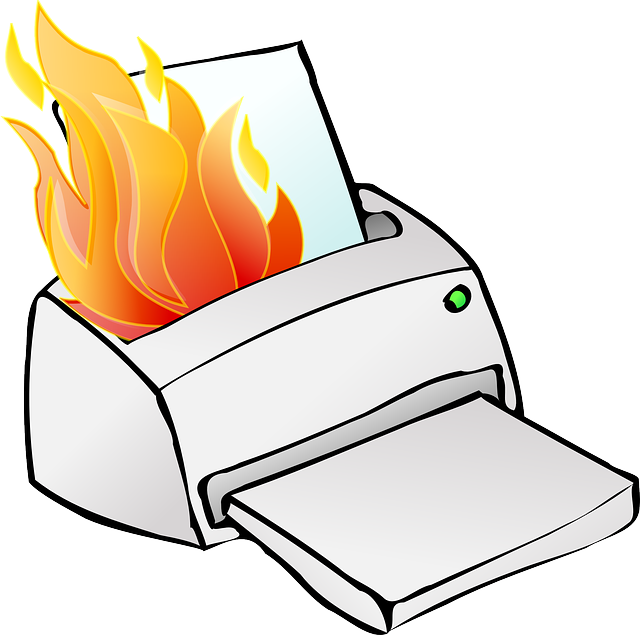Search
From wonky to wonkier, why your arbitration agreement may not be worth the paper on which it is printed?

Image Credit: Pixabay.com (https://pixabay.com/en/printer-fire-flames-broken-38027/)
Yesterday, I successfully alienated every reader that doesn’t work in the restaurant industry or otherwise nerd out on Fair Labor Standards Act minutiae.
Today, I double down with idiosyncratic arbitration agreements, specifically those possibly used by New Jersey employers. I promise to get back to something more universal tomorrow. Perhaps, Nova Scotian paid sick leave legislation.
For now, however, let’s take a trip to the Garden State. Mind the jughandles and, depending on what part of the state you do business in, enjoy some Taylor Ham or pork roll.
Now that you’ve finished your diner breakfast, I want to talk about this recent case. Here are the essential facts:
- Defendant-employer requires plaintiff-employee to sign an arbitration agreement.
- In the arbitration agreement, the employee agrees to arbitrate — go figure — any employment-related claims she may have against the employer.
- The arbitration agreement does not identify any arbitration forum or any process for conducting the arbitration.
- Employer fires employee.
- Employee sues in court for age discrimination.
- Employer seeks to enforce the arbitration agreement.
Here’s the question: Is the arbitration agreement binding, notwithstanding the shortcomings I highlighted in the third bullet up there?
Here’s the answer from the NJ Superior Court, Appellate Division:
[No.] The parties lacked a “meeting of the minds” because they did not understand the rights under the arbitration agreement that ostensibly foreclosed plaintiff’s right to a jury trial….The party from whom an arbitration clause has been extracted, must clearly and unambiguously agree to waive his or her statutory rights….Because arbitration involves a waiver of the right to pursue a case in a judicial forum, courts take particular care in assuring the knowing assent of both parties to arbitrate, and a clear mutual understanding of the ramifications of that assent.
In plain English, if you operate in NJ and you want to improve your chances at enforcing an arbitration agreement with an employee, don’t just require arbitration of employment-related claims. Instead, you also need to designate an arbitral institution (like the American Arbitration Association (AAA) or the Judicial Arbitration and Mediation Services (JAMS)). Or, at the very least, communicate a general method for selecting an arbitral setting.
Remember, most of your employees are unsophisticated when it comes to litigation and arbitration. So, if you take away a jury trial — and it’s ok to have an arbitration agreement — just make sure that you spell out how arbitration is going to work. That way, when the employee signs the arbitration agreement, he or she has a decent idea of what will happen should employment claims arise.
 The Employer Handbook Blog
The Employer Handbook Blog


